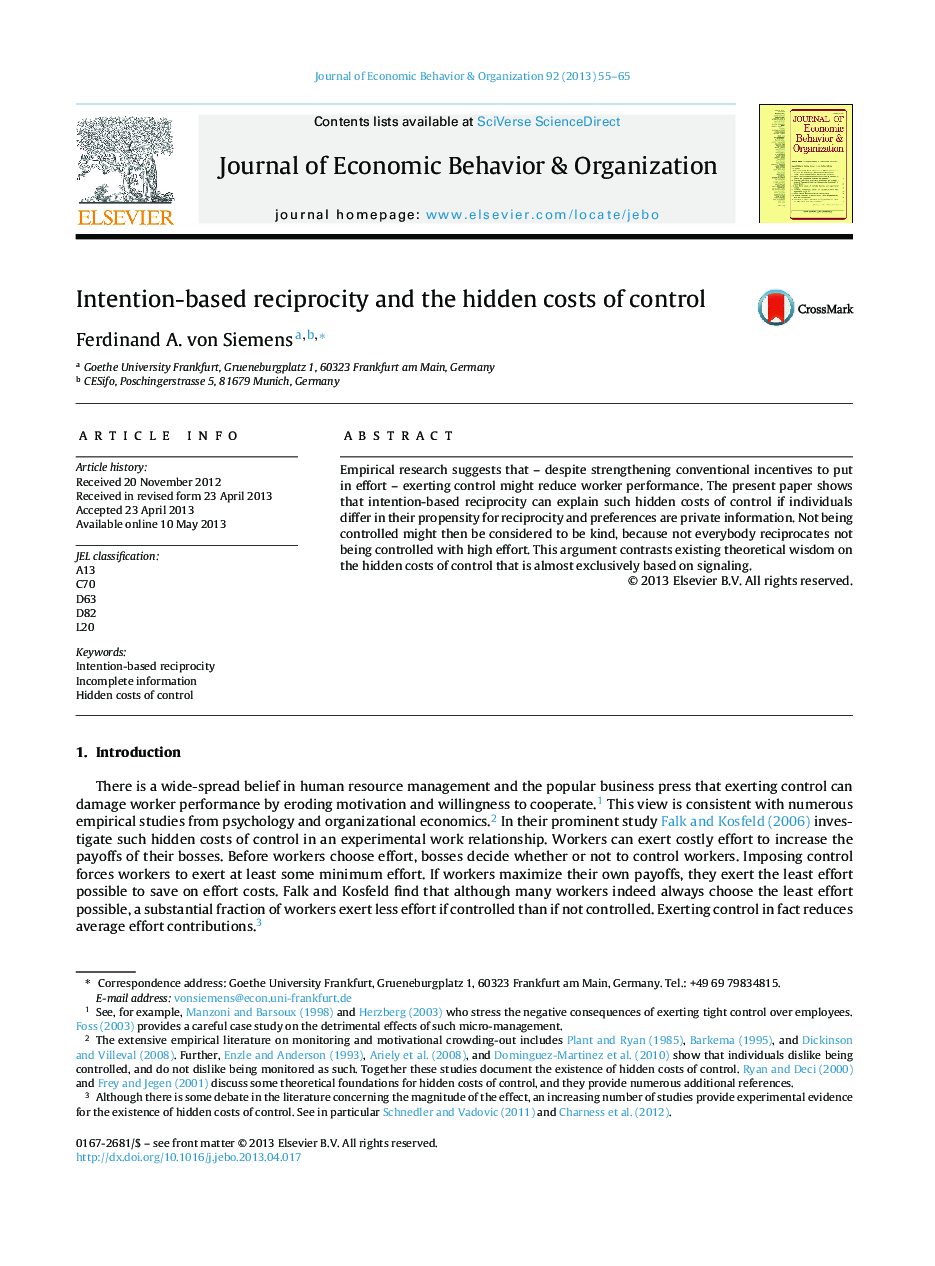| Article ID | Journal | Published Year | Pages | File Type |
|---|---|---|---|---|
| 7243757 | Journal of Economic Behavior & Organization | 2013 | 11 Pages |
Abstract
Empirical research suggests that - despite strengthening conventional incentives to put in effort - exerting control might reduce worker performance. The present paper shows that intention-based reciprocity can explain such hidden costs of control if individuals differ in their propensity for reciprocity and preferences are private information. Not being controlled might then be considered to be kind, because not everybody reciprocates not being controlled with high effort. This argument contrasts existing theoretical wisdom on the hidden costs of control that is almost exclusively based on signaling.
Related Topics
Social Sciences and Humanities
Economics, Econometrics and Finance
Economics and Econometrics
Authors
Ferdinand A. von Siemens,
